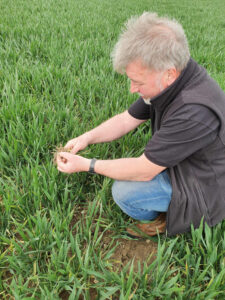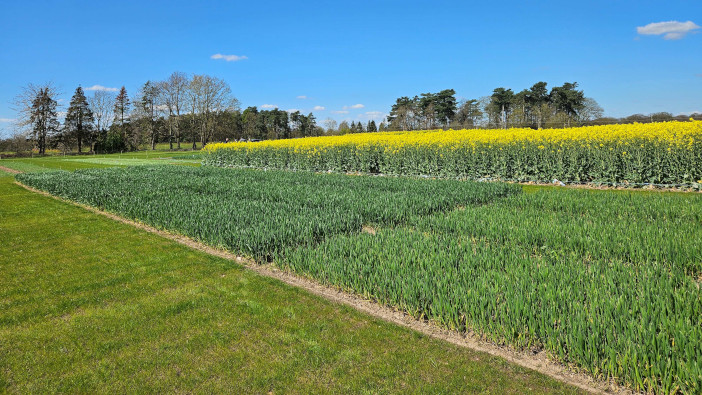UK biotechnology company AminoA is celebrating its 10th anniversary in the UK, stating that biostimulants are now becoming part of mainstream agriculture.
“Bio-stimulants are now becoming mainstream inputs, regulated worldwide, and suitable for use in all crops, from cereals to proteins, soft and top fruits to grassland,” explains Richard Phillips, AminoA managing director.
“Moreover, they can provide yield, performance and quality benefits, while helping reduce carbon footprints and overall input spend on expensive agrochemicals.”
The company started by challenging misconceptions about the efficacy of the products and has used trial work to showcase how biostimulants can reduce crop damage and losses.
“Basically, all plants are amino acid production factories, they all have to synthesise amino acids. What we do as a company, is break down proteins into amino acids, that the farmer can then apply to the crop,” explains Richard.
“What that means is, that if you apply amino acids to a crop that is struggling, is under stress and having difficulty growing, it will be able to achieve more growth, with the same amount of moisture and nutrients.
 “A plant has to produce amino acids all the way through its growth cycle. Our products include 18 amino acids, and it is a little bit like giving the plant the toolbox and saying, ‘I don’t know whether you need a saw, a screwdriver or a hammer today, but there is something in there that you can use’,” he adds.
“A plant has to produce amino acids all the way through its growth cycle. Our products include 18 amino acids, and it is a little bit like giving the plant the toolbox and saying, ‘I don’t know whether you need a saw, a screwdriver or a hammer today, but there is something in there that you can use’,” he adds.
While cost challenges and the availability of fertiliser have helped to drive demand for biostimulants, Richard notes that AminoA products can also boost the efficiencies of inputs and help limit the carbon footprint.
“It is about how biological products can help reduce the speed of disease development, as well as boost yields and quality. It is about understanding all elements of the growing process, from soil health to disease resistance to the interaction between biological solutions and agrochemicals.
“Properly formulated bio-stimulants can reduce grower costs and improve profits, as well as reducing the environmental impact of agrochemicals,” he adds.
Recent developments include the EU Fertilizing Product Registration (FPR) of AminoA FLO and AminoA BLAAZT, with applications being made for the seed treatment AminoA STAART. The company has also signed distribution agreements in China and Turkey, and is in the process of entering India and Kazakhstan.
AminoA is also looking at how to meet the challenging conditions in UK agriculture.
“We are farmers ourselves, and this has been an extreme season, with something like one a half times our usual rainfall. Seeing our customers this spring was more like doing therapy than making sales or talking about crop management,” explains Richard.
“What we do know is, that we have the tools in the box that can help, whether that is providing resistance for waterlogged crops, to stress by cold, heat, drought and agrochemical phytotoxicity.
“We have also introduced Flynn, our multi-lingual AI chatbot, fully trained on our technical dossier, and able to give advice on crop nutrition matters and our products in any language. We are very proud that ten years down the line, we are still introducing new solutions to support the industry in a sustainable way,” he concludes.


